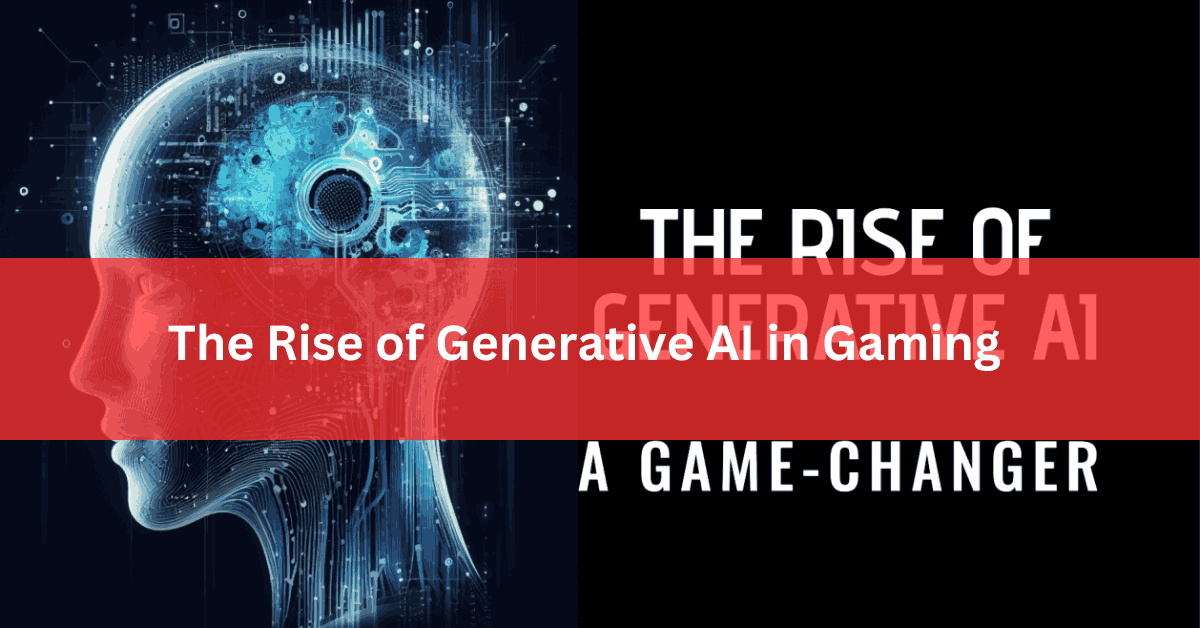The Rise of Generative AI in Gaming
In the dynamic world of video games, a new trend is making waves and changing how games are designed and played. This trend is the integration of AI game design, a technology that’s not just revolutionizing the backend of gaming but also enhancing the player’s experience.
With the power of AI, games are becoming more immersive, intelligent, and endlessly fascinating.
Creating Dynamic Game Environments
One of the most exciting applications of AI in gaming is the creation of dynamic, ever-changing game environments. Unlike traditional games, where the landscape remains fixed, AI game design allows for evolving worlds based on player actions. This means every decision you make can influence the game world, leading to a unique experience for every playthrough.
Furthermore, these AI-generated environments can adapt in real time, responding to player strategies and actions with new challenges and opportunities. This level of responsiveness adds a layer of depth and realism to previously unattainable gaming, making each game session unpredictable and thrilling.
Adobe states, “Turning your vision into visuals has never been simpler.”
Personalizing Player Experiences
AI is taking personalization in gaming to a whole new level. By analyzing your play, AI game design can tailor the gaming experience to fit your preferences and skill level. This could mean adjusting difficulty in real-time to keep the game challenging but not frustrating, or it could involve suggesting in-game content based on your interests.
This personal touch ensures that games feel more engaging and relevant to each player. It’s like having a game that understands you and changes to match what you enjoy the most, making gaming sessions more enjoyable and satisfying.
Enhancing Non-Player Characters (NPCs)
Non-player characters (NPCs) play a crucial role in storytelling and gameplay. With AI game design, NPCs can now display behaviors and reactions that are more complex and realistic. They can make their own decisions, react to player actions in unforeseen ways, and even develop over time.
This advancement breathes life into the virtual world, making interactions with NPCs feel more genuine. Players can expect to face opponents with evolving strategies and tactics, making for a more dynamic and challenging gaming experience.
Streamlining Game Development
On the development side, AI is proving to be an invaluable tool. It can automate time-consuming tasks like generating level designs or creating character models. This not only speeds up the development process but also opens up new possibilities for creativity and complexity in game design.
By handling the more tedious aspects of game creation, AI allows developers to focus on the creative side of game development. This can lead to more innovative games, as developers have more time and freedom to explore new concepts and gameplay mechanics.
Advancing Procedural Content Generation
Procedural content generation (PCG) is another area where AI is making a significant impact. Through PCG, games can automatically create vast amounts of content, from landscapes and buildings to quests and stories. AI-driven PCG takes this a step further by ensuring that the generated content is not just vast but also meaningful and coherent.
This means games can offer a much wider variety of experiences without requiring developers to meticulously craft every detail.
The integration of AI game design is profoundly transforming the gaming industry. From creating dynamic environments and personalizing experiences to enhancing NPCs and streamlining development, AI is unlocking new possibilities that were once the stuff of science fiction. As you move forward, the fusion of AI and game design promises to bring about even more innovative and captivating gaming experiences, solidifying AI’s role as a pivotal force in the evolution of gaming.




